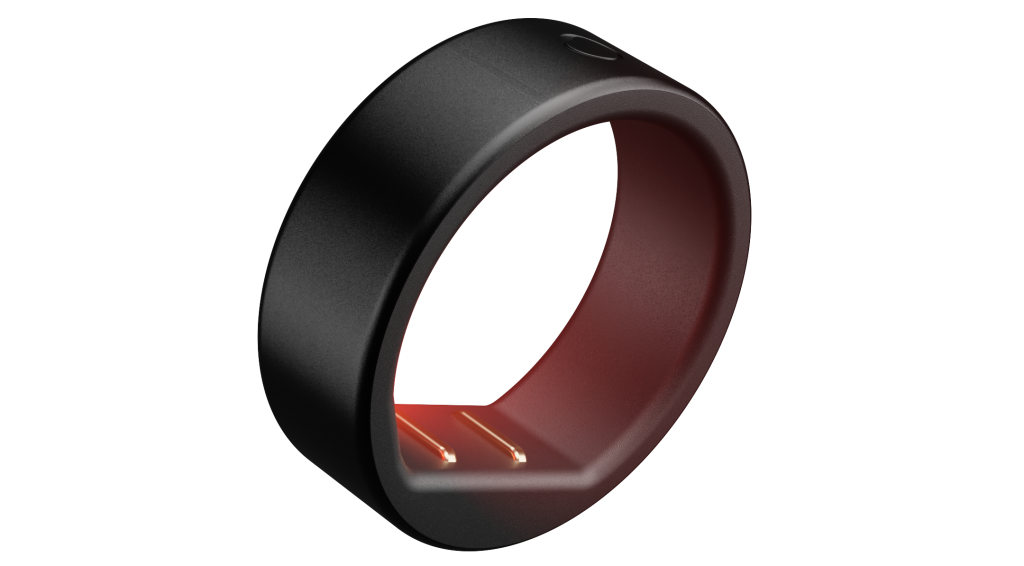Rings have been around for a long time. The earliest existing rings were found in the tombs of ancient Egypt. The Egyptians primarily used signet rings with an engraved seal for the wearer to authenticate documents. In the early centuries of the Roman Republic, most rings were of iron; the wearing of gold rings was restricted to certain classes, such as those who had held high office. The Romans are also thought to have originated the custom of betrothal rings, or engagement rings, symbolizing a promise of marriage.
By the 19th century, the traditional distinctions between ring types had mostly broken down. Fine-quality modern rings, many of which are machine-made, usually consist of gold or silver and feature standard-sized diamonds or other precious stones. They are worn either for purposes of simple adornment or as symbols of betrothal and marital fidelity.
But rings as jewelry is only part of their history. In 1975, the world was introduced to the mood ring. A mood ring is a ring that contains a thermochromic element, or “mood stone,” that changes colors based on the temperature of the finger of the wearer. Finger temperature, if the ambient temperature is relatively constant, can significantly determine peripheral blood flow, which is modulated by the autonomic nervous system.
One producer of “mood rings” was Joshua Reynolds who called the rings “a real biofeedback tool” that allows a person to get additional information about their body. In December 1975 the total value of the rings sold reached $15 million. However, after a couple of years, “mood rings” went out of fashion.
Now, modern technologies, such as AI (artificial intelligence), are making the concept, if not the mood ring name, enjoy a return to popularity. Circular is creating the next generation of remote monitoring solutions for consumers and health professionals built into high-performing smart rings. The original Circular Ring Pro, designed to be used and worn constantly, provides a full circle of health information.

Following the success of their Circular Ring Pro, the company has introduced the Circular Ring Slim, the thinnest and lightest smart ring to incorporate haptic navigation and alerts. Paired with Kira+, Circular’s AI wellness assistant, the Circular Ring Slim assesses 7 biometrics and 142 derived markers 24/7 to help people sleep better and live healthier lives.
Measuring 2.2 mm in thickness and weighing only 2 grams, the Circular Ring Slim is one of the most precise health trackers available, thanks to a suite of advanced sensors. It has a three-axis accelerometer count that assesses activity and movement, a surface temperature sensor, and advanced sensors combining three different LED light wavelengths—green, red, and infrared—to capture a range of health vitals such as heart and respiratory rates, blood oxygen levels and heart rate variability.
With a 6-day battery life and 20 days of on-board memory, Circular Ring is designed to be constantly worn day and night. Its ultra-thin design ensures maximum comfort. It collects health data every 2 minutes to provide 15 times more health data than competitive trackers, and by being continuously worn, it helps build a picture of overall health and can help predict potential health conditions.
During the day, the ring captures activity, blood oxygen levels, energy levels, calories burned, heart rate, respiration rate, and chronotype, among other metrics. At night, the ring ambiently tracks circadian rhythm and records sleep quality, heart rate variability, sleep disturbances, REM cycles, and sleep and wake times. Its sensors measure temperature variations during sleep, which, combined with other biometrics, can provide a clearer picture of the wearer’s immune system and provide early detection of illness.

To make actionable sense of the data collected by the Circular Ring, it is connected to Kira+, an AI-powered conversational health and wellness assistant. Trained with millions of health data points and leveraging the latest generative AI language models, Kira+ is like having a personal health coach on hand 24/7, providing personalized health information and recommendations in a reliable and relatable way.
Kira+ continually analyzes the ring’s data and gets to know the user over time. Over a 14-day period, Kira+ asks questions about daily habits and preferences to set a base level. Based on an in-depth analysis of a user’s parameters, chronotype, digital biomarkers, and health goals, Kira+ then delivers personalized health recommendations and analyses tailored to individual users. Unlike other smart devices, this valuable advice is offered free without incurring monthly subscription fees.
Getting better over time, Kira+ also assesses the multitude of biomarkers monitored to predict potential health lifestyle or nutritional issues before they occur or even provides an early warning system for detractions in medication compliance.
Programmed within the Circular app, Kira+ also provides motivation through gamification strategies, challenges, leaderboards, and even the ability to earn financial rewards through the Circular Coin program. By achieving health or activity goals, users can earn Circular Coins, a digital currency that can be exchanged for Circular’s products and services such as outer shells, chargers, cable, rings, premium app features, or trusted third-party products and services.
Want to tweet about this article? Use hashtags #IoT #AI #edge #digitaltransformation #machinelearning


